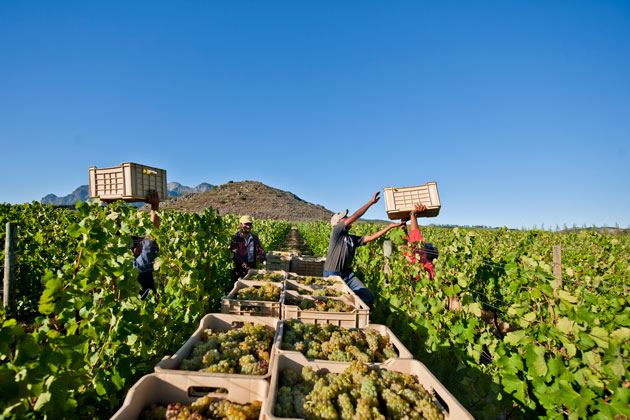As climate change intensifies and agricultural resilience becomes critical, California’s wine industry has emerged as a model for sustainable transformation. Through its Green Medal Sustainable Winegrowing Leadership Awards, the industry highlights practical strategies, like water conservation, renewable energy, and community empowerment, that hold valuable lessons for Africa’s wine sector and broader agribusiness.
The relevance of this to Africa lies in adaptation ~ African countries like South Africa, Kenya, Morocco, and Ethiopia are home to fast-evolving wine and viticulture sectors—each with its own climate pressures, community dynamics, and global market ambitions. In South Africa, for example, the Integrated Production of Wine (IPW) scheme has provided an industry-wide framework for environmental and social compliance since 1998. Through programs like WWF’s Conservation Champions, producers voluntarily conserve native ecosystems while maintaining high production standards. In regions like the Swartland, a new generation of winemakers is experimenting with dry farming, regenerative agriculture, and low-input processing—practices that resonate with many of the California winners.

California’s Green Medal recipients show that sustainability is not just good for the planet; it makes business sense. In a continent where many agri-enterprises struggle to secure markets, manage water scarcity, or demonstrate their environmental credentials to international buyers, these examples help demystify the economics of green growth. Winners like Nuveen Natural Capital, which retrofitted canals with PVC liners to reduce water loss and energy costs, reflect approaches that could transform African farms coping with erratic rainfall and rising energy bills. Similarly, vineyards like Chandon, which offsets deforestation by planting trees in natural habitats, echo land stewardship efforts seen in parts of South Africa’s Cape Winelands and Kenya’s Rift Valley.
Read also: European Union’s recent green reforms could redefine Africa’s trade and climate landscape
Perhaps most importantly, the Green Medal Awards integrate community into the sustainability conversation. Jordan Vineyards & Winery, one of the 2025 honorees, runs a philanthropic foundation that supports over 200 nonprofits while also offering employees funds to donate to causes of their choice. This mirrors similar efforts in Africa, where estates like Bosman Family Vineyards have pioneered worker co-ownership models and community education programs like the Pebbles Project in Stellenbosch, which provides schooling for children of farmworkers.
The African wine sector—particularly in South Africa—is already viewed globally as a leader in ethical and sustainable wine production. But the continent lacks a continent-wide framework for rewarding or scaling these efforts. California’s Green Medal Awards demonstrate that formal recognition can amplify best practices, draw in investment, and align producers with evolving consumer expectations for transparency and accountability.

A pan-African version of such an awards system would go beyond viticulture. It could bring visibility to sustainable grain, fruit, and flower producers across regions like the Kenyan highlands, Ethiopia’s Rift Valley, and Morocco’s Atlas foothills. It would create a feedback loop of innovation, standard-setting, and storytelling—connecting rural growers with export markets, sustainability financiers, and domestic consumers looking to support values-based agriculture.
Ultimately, the lesson from California is that sustainability cannot live in the margins. It must be institutionalized, rewarded, and communicated—not as an obligation but as an opportunity. For Africa’s wine and agri-business sectors, the challenge now is not just to grow more—but to grow responsibly, equitably, and with the future firmly in mind.
Read also: IIB East Africa earns global recognition for redefining sustainable banking in the Horn of Africa
By reframing sustainability as a competitive advantage—and creating the mechanisms to showcase and reward it—Africa has the chance not just to learn from others, but to lead.

